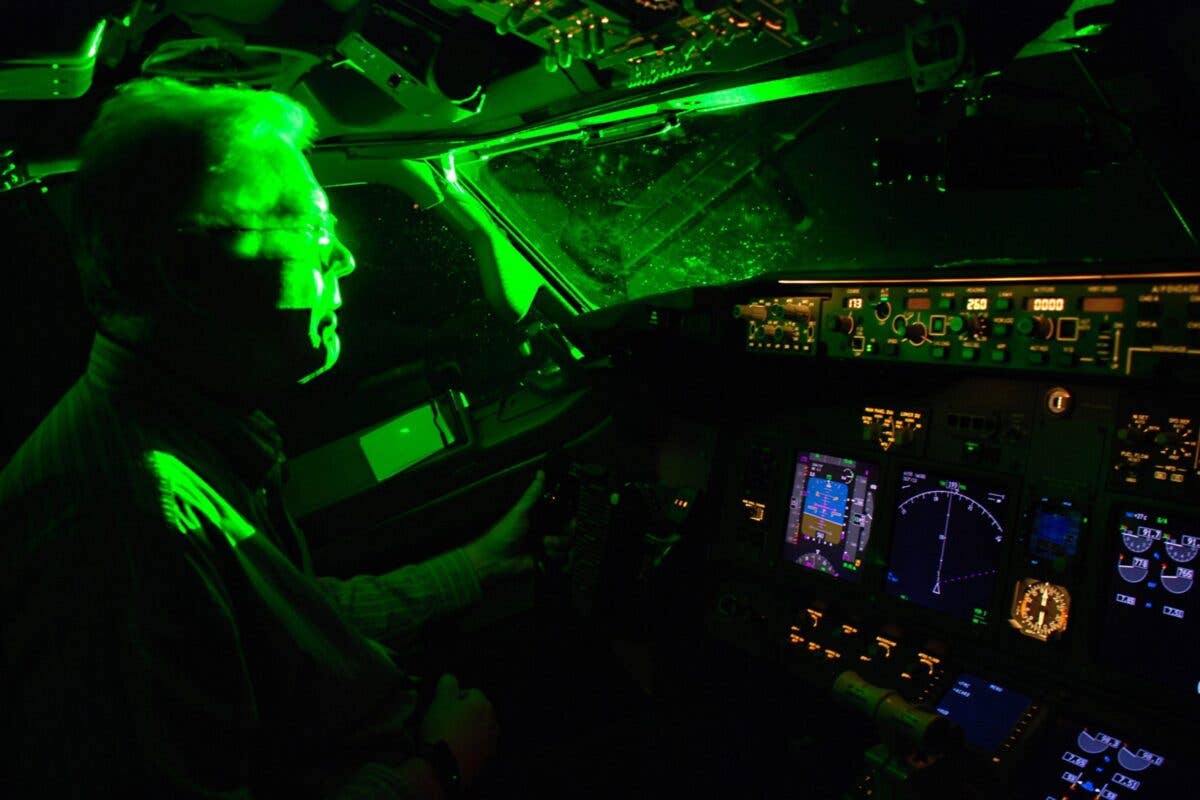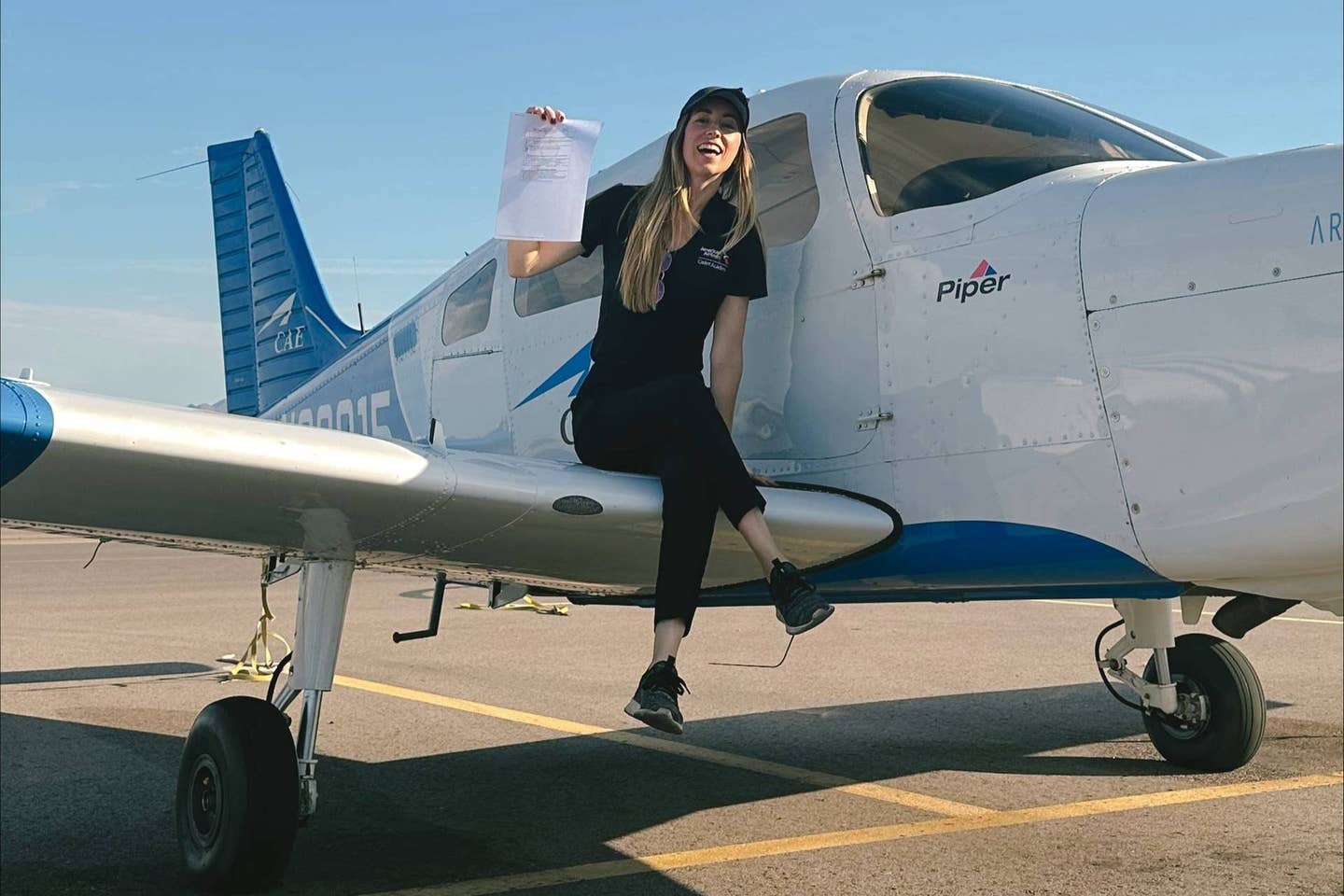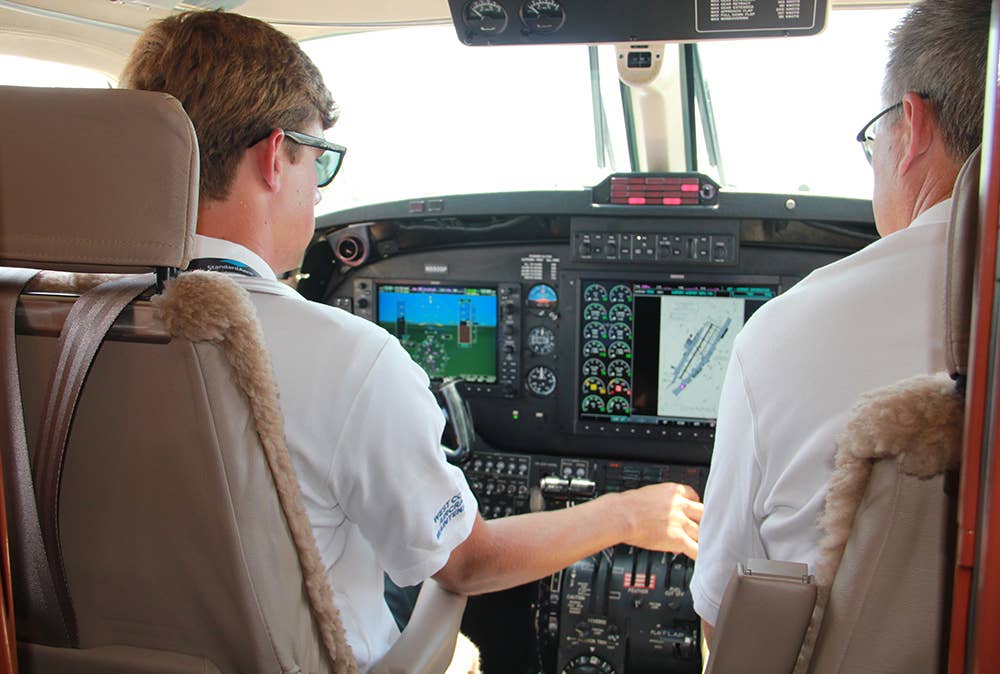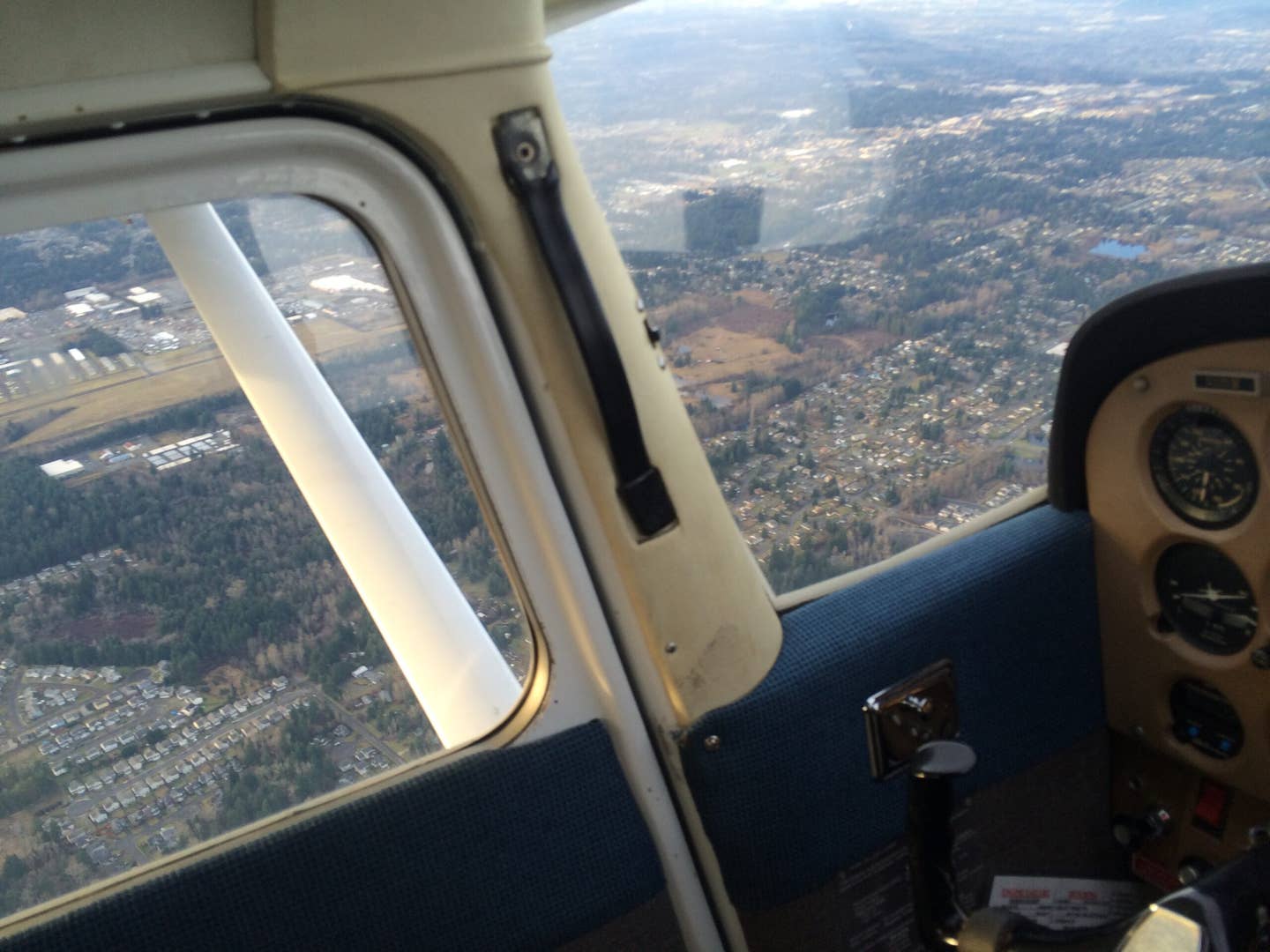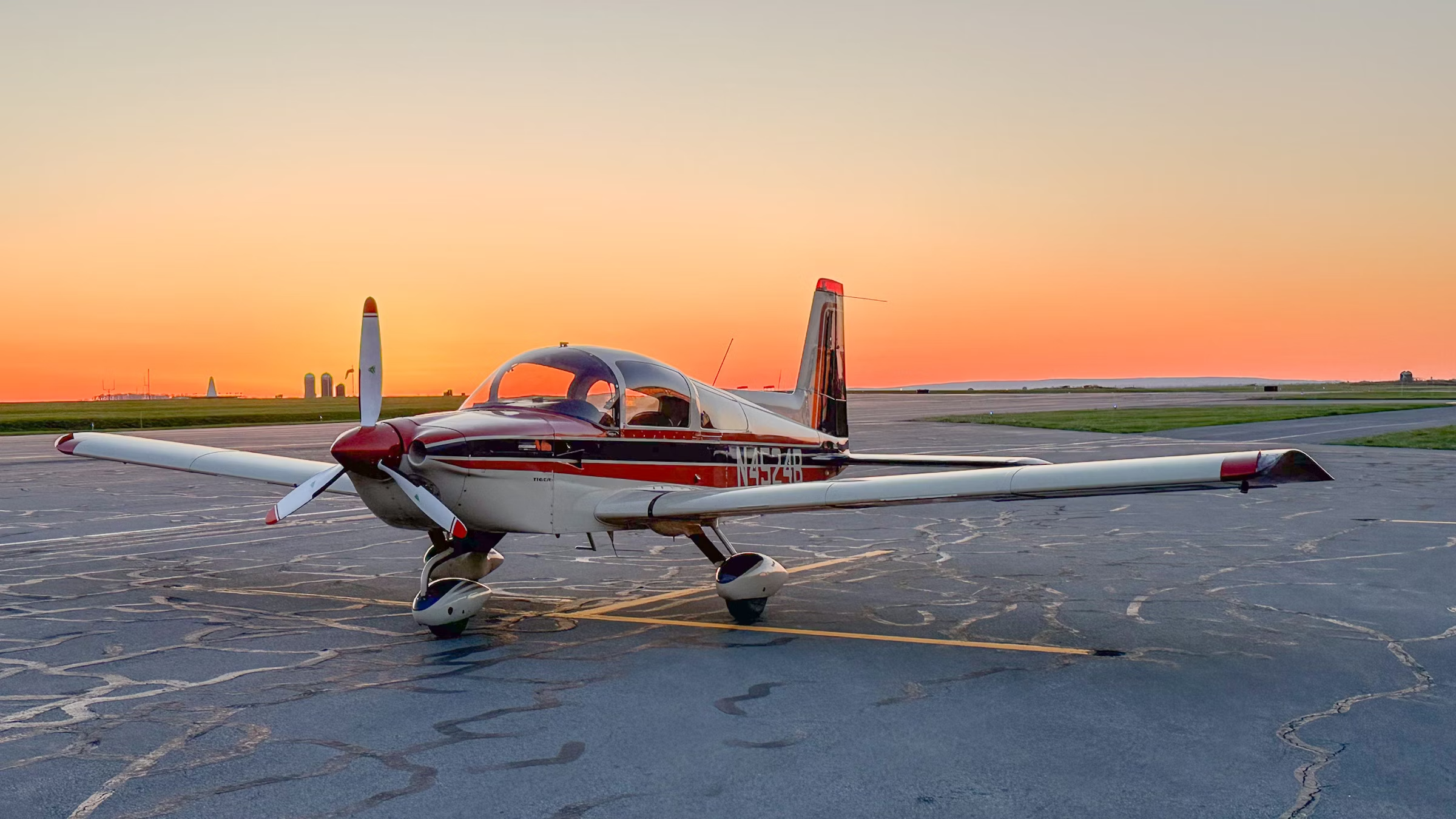A2Z Rolls Out Delivery ‘Drone-Network-as-a-Service’ Offering
The company introduces a suite of drone delivery docks that enable autonomous charging, pickup, and delivery.
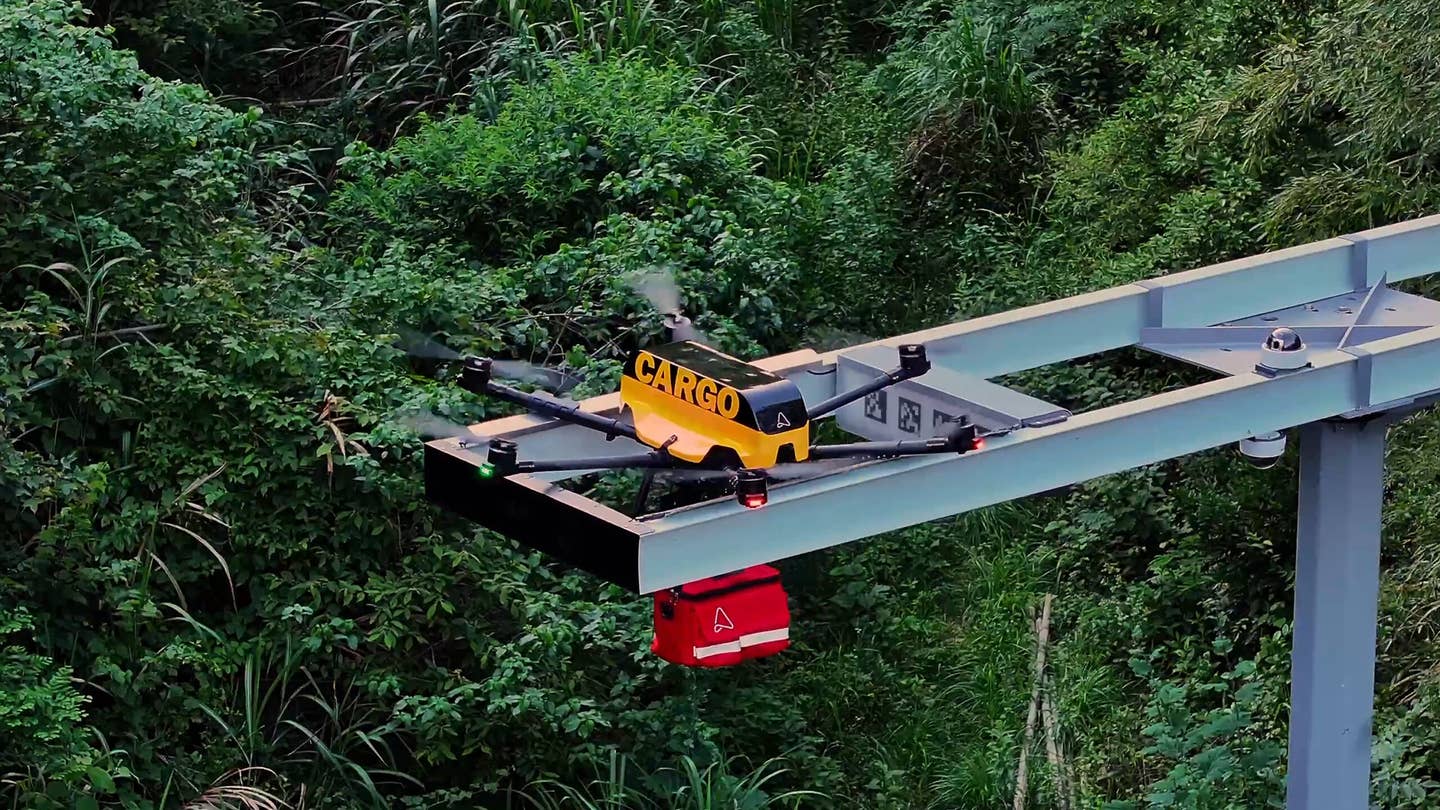
Rather than buying it outright, customers can use A2Z’s AirHub offering by paying a monthly service fee. [Courtesy: A2Z Drone Delivery]
The subscription model is king when it comes to services such as video streaming. But what if you could subscribe to be part of a drone delivery network?
California-based A2Z Drone Delivery on Monday launched a suite of autonomous drone docks—portable or permanent sites where drones can charge and pick up or drop off packages, with no human interaction. Accompanying the firm’s new AirDock offering, which comes in four configurations, is a companion drone specially designed to integrate with the system.
Interestingly, though, customers may choose to directly purchase or lease the technology from A2Z, or they can opt for a drone-network-as-a-service (DNaaS)—essentially, a subscription model tied to a temporary contract.
“While the AirDocks are designed to safely and more easily scale drone operations in a sharable fashion, we also saw an opportunity to lower that financial barrier to entry even further for customers,” Aaron Zhang, cofounder and CEO of A2Z, told FLYING. “Our new drone-network-as-a-service (DNaaS) model is a pathway for customers to get off the ground quickly, without having to make the full upfront capital investment in a network of drone docks and UAVs.”
With the AirDock, drones can fly from dock to dock to autonomously pick up, deliver, or recharge in as little as 30 minutes. The weatherproof modules, designed for both cargo and patrol flights, are elevated to keep sharp propellers away from people.
Customers can deploy a single system or arrange multiple docks in a network, using automated charging to greatly extend the range of their operations. According to A2Z, the technology has no moving parts, allowing it to be deployed at a “fraction of the cost” of more complex systems.
“We've seen plenty of drone-in-a-box users struggle with burdensome maintenance on overly complex hardware, so we designed our AirDocks to be 'solid-state' with no moving parts to worry about,” said Zhang.
The company will sell AirDocks to drone service providers, enterprise-level operators, and government agencies, who can manage deliveries remotely through a client web-based user interface. Customers can track delivery status, request a pickup, view patrol reports, schedule patrol missions, and view live video feeds.
The AirDock will come in four configurations, each designed to meet a different operational need.
The Portable module can be carried by hand or fold to fit within the trunk of a van or checked airline luggage. The “most cost-effective offering” in the AirDock suite, it can be deployed in minutes and manage multiple drones.
The more rugged Shelter module is designed to house a single drone for extended periods of time, such as overnight or between missions, and can withstand extreme weather conditions. A2Z describes it as a “deploy and forget” option for remote operations where the drone cannot be recovered at the end of the day.
For customers operating many drones or sharing airspace with other providers, the company offers the AirDock Dual and Quad, which can dock and charge two and four drones respectively. These permanent structures are elevated about 20 feet off the ground and use the same foundation and power supply as standard streetlamps. With the Dual or Quad module, multiple customers could share infrastructure in the same high-traffic area.
“A countywide network of AirDocks can simultaneously support first responder drones providing rapid eyes on traffic accidents, while also patrolling protected reservoir waters, and collecting water data samples,” Zhang told FLYING. “At the same time, local drone service providers may leverage the same AirDock network for food delivery.”
The companion drone for the system, the AirDock Edition Longtail, is a version of the company’s commercial drone platform, unveiled last August, that has been modified to integrate with the automatic charging system. The model features a hexacopter airframe that supports an 11-pound payload, cruising at about 650 feet. It can fly in moderate rain or even snow.
The AirDock Edition Longtail can hop between docks to recharge itself and extend missions indefinitely. Its onboard computer includes A2Z’s new autonomous precision landing capability, while a heating system and cell balancing system help to maintain its batteries.
Using ground control station software, operators can preplan drone routes between docks, repeating missions with the touch of a button. Pilots can take over manually at any time.
The drone features a customizable cargo bay that can be fitted for a range of missions including last mile delivery, data collection, infrastructure inspection, and search and rescue. Two models are available at launch. The Longtail Cargo has a range of about 11 nm and comes integrated with A2Z’s winch system, which lowers packages from altitude on a tether. The Longtail Patrol, meanwhile, has a range of 19 nm and includes a thermal camera, LED spotlight, and megaphone.
A2Z got its start manufacturing commercial drone delivery hardware. But with the launch of the AirDock system, the company hopes to offer a drone-network-as-a-service (DNaaS) comprising not just the aircraft but the ecosystem around them.
Enterprise or government agency customers can choose to purchase or lease the technology directly from A2Z or a leasing partner, or they can opt for the DNaaS model, under which A2Z owns and maintains the docks and drones.
Under the latter option, the customer pays a monthly service fee and is responsible for operations. Following a vetting and onboarding process, A2Z will ship the drones and docks, which can be customized with customer branding, and assist with setup. After that, the company would remain on standby to provide operational, technical, and regulatory support.
Contract terms begin at six months but can be extended, with an early termination fee of half of the remaining contract length.
Like this story? We think you'll also like the Future of FLYING newsletter sent every Thursday afternoon. Sign up now.

Sign-up for newsletters & special offers!
Get the latest FLYING stories & special offers delivered directly to your inbox

